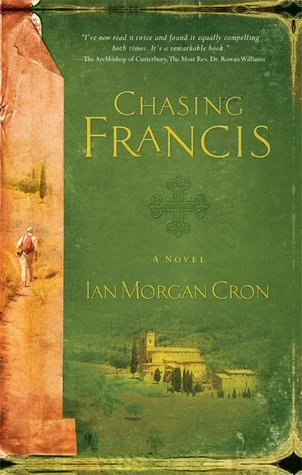Chasing Francis
My pilgrimage to Assisi was perhaps an unconventional one. I was mapping out an itinerary for a two-week backpacking trip with two buddies during college, for what would be my first — and so far only — trip to Europe. Rome, Florence, Pisa, and Venice made the cut on the merits of their monuments, restaurants, and cathedrals. Cinque Terre, Como, and Bellagio were added for their waterfront beauty (and, in the case of the latter two, the vague hope we’d spot the Night Fox). For good measure, we scheduled a stop in Lugano, just to say we’d been to Switzerland.
While many devotees of Saint Francis travel to his hometown every year to pay homage, for us Assisi was simply a convenient stop between Rome and Florence. Prior to the trip, in order to learn more about Assisi’s most famous son, I read Julien Green’s classic biography. This proved helpful in deciphering why, in a stone carving in a nondescript alley outside our hostel, Francis was pictured calmly having a chat with a wolf.
We visited a lot of amazing places during our two weeks in Italy, but Assisi was special. I remember walking back from dinner that night in the quiet, misty rain (the hoards of day-trippers had earlier returned to their hotels in the big cities), and I felt like I just as well could have been walking the cobblestone streets in the thirteenth century, rather than the twenty-first.
Since that trip my interest in “God’s fool” has lead me to read a number of other books, including Chesterton’s, Paton’s, Murray’s, and of course, The Little Flowers. A Franciscan benediction worked its way into the speech I gave at my grad school commissioning ceremony, and a beautiful rendition of his prayer was sung at our wedding by my good friend Matty.
Needless to say, the fascination is ongoing. In recent years I started hearing a lot of good things about a novel called Chasing Francis: A Pilgrim’s Tale, written by Ian Morgan Cron, an author, speaker, and Episcopal priest. My friends Vince and Lisa (of Kitchen on the Street) recently loaned it to me, and then before I could read it, I won a signed copy from the author thanks to the magic of Twitter. I took all of that as a sign that it was time to read it.
The novel is unlike any of the other book I’ve read about Francis in that it is, well, a novel. It’s also original in the fact that it’s set in the present day, following Chase Falson, the pastor of a thriving evangelical megachurch in New England, through a very public crisis of faith. After the church’s elders make it clear he needs to get away for a while to sort things out, he finds himself visiting his uncle, a Franciscan priest who has moved to Assisi. What Falson learns about Francis helps him discover that there might be more to Christianity than the formulaic answers he’d learned in seminary and had recently found untenable (I’ll refrain from spoiling the story by revealing any more of the specifics).
One wonders how much of the book is truly fictional, or whether it’s a thinly veiled autobiography of the author, or even intended as an exploration of the shifts taking place within the contemporary North American church. Regardless, for the most part it’s wonderfully written and believable.
Like any good Protestant, though, I admit I do have my hang-ups when it comes to Catholic saints like Francis. The stories passed down about him preaching to birds, reasoning with a wolf, and receiving the stigmata seem a bit far-fetched and spooky, to say the least. Plus, I think he was a sinner like the rest of us, something not everyone seems particularly eager to admit.
Nonetheless, his example is one that all Christians — not just Catholics — would do well to consider. Most notably, turning his back on a self-centered life of hedonism in order to serve the poor and rebuild the church (both literally and figuratively) is instructive for us today; I don’t think I need to convince you of that. And as ambassadors of Christ’s reconciliation in a world that in some sobering ways is not unlike the world of the thirteenth century, I know of no better prayer outside of scripture than this one: “Lord, make me an instrument of your peace.”
Even if you’re not ready to make the pilgrimage to Assisi, and even if you’re skeptical of (or merely disinterested in) all the standard biographies, do consider giving Chasing Francis a read. I’m glad I did.
